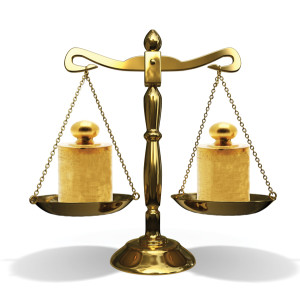Can a Christian baker decline to bake a cake for a gay wedding? If so, it may be based on freedom of speech more than freedom of religion, and it all may come down to one Supreme Court justice.
That issue will be decided in what could be a “historic” term, said John DiPippa, interim dean of the University of Arkansas at Little Rock law school.
DiPippa spoke at the Clinton School of Public Service Monday, the same day the court began its new term. With him was Associate Dean Theresa Beiner.
DiPippa said the short-handed and divided Supreme Court declined to hear many controversial cases last year because it had only eight members after Justice Antonin Scalia died. The Republican-controlled Senate refused to hold hearings on President Obama’s nominee, which left the court in limbo. This year, the Senate quickly confirmed President Trump’s nominee, Neil Gorsuch. DiPippa said he will vote much like the conservative Scalia.
Political gerrymandering
Among the most important cases is Gill v. Whitford, where the Supreme Court will decide if the Republicans controlling the Wisconsin Legislature went too far in drawing district lines to benefit their party.
Such “gerrymandering” is almost as old as our democracy, but in recent years it’s become a computer-aided science. If done right, the majority party can stuff the other party’s voters into a few districts while spreading its voters around. That’s how Wisconsin Republicans, who drew the lines after 2010, won 48.6 percent of the vote statewide in 2012 but were able to control 60 of the state’s 99 legislative seats.
The court previously has avoided ruling on gerrymandering, reasoning that redistricting is the responsibility of the government’s other branches. This time could be different. If the ruling goes against Wisconsin, it will change American democracy.
Other important cases include three search and seizure cases, one deciding if police can obtain cell phone records from a phone provider without a warrant. The court could hear a case on President Trump’s travel ban, which initially ran into legal trouble because it included only majority Muslim nations. However, his administration has since added North Korea and Venezuela to the ban, which may make moot those religious concerns. An important case about sports betting in New Jersey could affect the power balance between states and the federal government.
Make them bake cake?
But it’s Masterpiece Cakeshop, Ltd. v. Colorado Civil Rights Commission that will attract the most attention (and is probably the reason you’re still reading). In that case, a Colorado baker declined to serve a same sex wedding because it violated his religious beliefs. The state fined him, saying he violated a state law forbidding businesses to discriminate based on sexual orientation. He sued.
DiPippa said the baker is unlikely to prevail based on freedom of religion grounds. Courts have said laws like this can be constitutional as long as they don’t target a religion. You can’t run a stop sign and claim you were late for church, he said.
Instead, if the baker wins, it will be on free speech grounds, he said. Americans cannot be forced to make statements of belief, a principle known as “compelled affirmation.” The court could rule that principle would protect owners of “expressive” businesses, such as a baker who decorates and writes messages on a cake.
This case is a doozy because it pits government functions against each other – protecting religion and speech freedoms versus preventing discrimination. The decision likely will not be announced until the court’s term ends in June. And it likely rests on the court’s swing vote, Justice Anthony Kennedy, who sometimes votes “liberal” and sometimes votes “conservative.” DiPippa said Kennedy is both an ardent defender of free speech and a strong supporter of gay rights.
This is a case where many people have strong opinions, which they’re still free to express, this being America. But only nine people’s opinions matter – particularly one person’s. I guess we’ll find out what it is in June.
© 2017 by Steve Brawner Communications, Inc.
